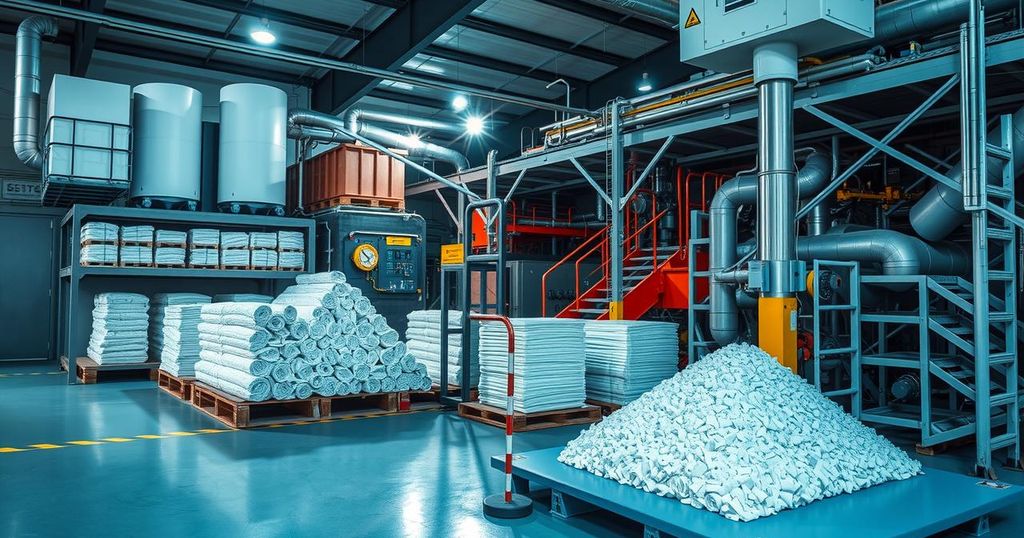Brazil’s paper and pulp industry is set to comply with the EU’s EUDR, having maintained traceable supply chains for over 20 years. While the regulation will not disrupt operations, it necessitates an investment in blockchain, increasing costs by up to $230 per ton. The industry views the postponement as favorable for effective implementation, though experts emphasize immediate action against deforestation is critical. Companies like Suzano have already adopted rigorous practices to ensure sustainable sourcing and compliance with regulations.
Brazil’s paper and pulp industry indicates that the upcoming European Union’s deforestation-free products regulation (EUDR) will not disrupt their operations. The industry has established traceable supply chains for over twenty years, ensuring no timber is sourced from illegal deforested areas. Nevertheless, implementing some EUDR requirements will necessitate investments in blockchain technology and other innovations, potentially raising costs per ton of pulp by up to $230. The Brazilian Tree Industry (Ibá) stresses that while this adjustment imposes additional costs, it remains manageable for its members.
The EUDR mandates that all suppliers exporting to the EU validate their products are not derived from illegitimate deforestation, a measure seen as crucial for combatting ongoing illegal deforestation in the Amazon. Although the EUDR’s initial enforcement date was pushed back, Ibá believes this will facilitate a more effective implementation. However, deforestation experts argue that postponement is detrimental given the escalating climate crisis and ongoing deforestation trends.
Brazil exports approximately 4.4 million tons of pulp annually to the EU, a significant component of the tissue paper market. According to Ibá, the country maintains cultivated tree production over 10.2 million hectares, while also preserving a native forest area larger than Rio de Janeiro. The organization reassures that commercial plantations are located on previously altered land and that strict compliance audits occur to uphold international forestry certifications.
The company Suzano Papel e Celulose has proactively embraced the best forest management practices, ensuring all its timber is sourced from land free of deforestation as of July 2020. Suzano’s approach has included leveraging an in-house blockchain solution to streamline compliance data retrieval, reinforcing traceability across its operations.
The postponement of the EUDR has elicited mixed responses. Ibá supports the delay, citing the need for refinement and clarity in the regulatory framework. In contrast, experts emphasize the urgency of action against the continuous threat of deforestation. They assert that more robust regulations are necessary to ensure Brazil is not classified as a high-risk nation due to its failure to adequately control deforestation.
Despite the postponement, there is a consensus that the EUDR presents an opportunity to enhance transparency and accountability within the industry. Suzano regards these regulations as a pathway towards improved standards for sustainable production, ensuring all operations comply with local and international laws, while safeguarding against potential human rights violations.
In summary, Brazil’s pulp and paper sector, while well-prepared to meet EUDR standards, recognizes that compliance will involve substantial investment in technology and increased operational costs. The ongoing dialogue surrounding the EUDR underscores the dual imperative to combat illegal deforestation and sustain the industry’s economic viability.
The EUDR is positioned to play a significant role in regulating the importation of products linked to deforestation, particularly for countries like Brazil, where illegal deforestation poses a substantial environmental threat. The regulation requires exporters to authenticate the legality of their timber sources. Despite the implementation challenges, the initiative is seen as vital for protecting ecosystems like the Amazon, which faces continuous deforestation pressure. Industry stakeholders have been preparing for adherence to the regulation, conducting audits, and developing technologies to enhance traceability, illustrating a proactive approach towards sustainability.
The Brazilian paper and pulp industry’s advance in adopting blockchain and compliance technologies reflects a commendable initiative towards sustainability, particularly with the incoming EUDR. While the postponement of the regulation has elicited varying perspectives, it ultimately serves as an opportunity for the sector to refine its operations and bolster transparency. Moving forward, balancing environmental responsibility with economic imperatives will remain crucial for the industry’s sustainability and compliance efforts.
Original Source: news.mongabay.com






